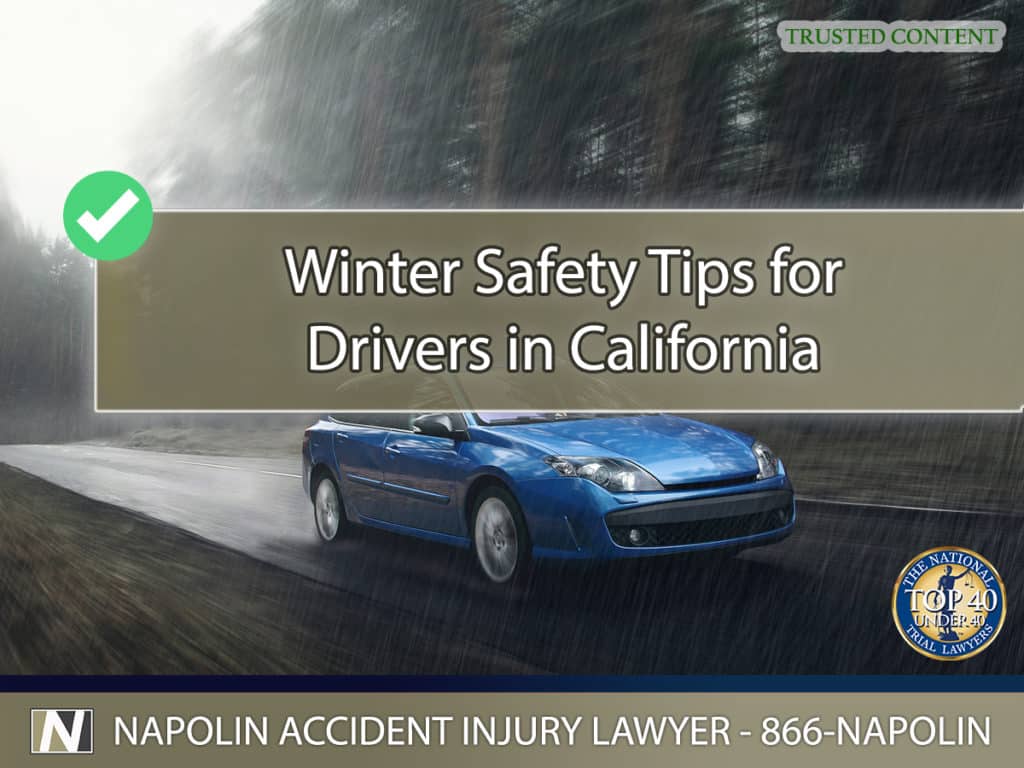Navigating the roads during California's winter requires a blend of preparedness, awareness, and understanding of state-specific driving laws. This comprehensive guide aims to equip drivers with the necessary knowledge and tips for safe driving during the colder months, ensuring a safer journey for all.
Comprehensive Understanding of Winter Road Risks in California
Comprehensive Understanding of Winter Road Risks in California
While California is known for its sunny weather, winter months can bring unexpected driving challenges. Rain, fog, and occasionally sleet create slippery and hazardous road conditions. According to the U.S. Department of Transportation, rain is a significant factor in many weather-related accidents. Drivers must be vigilant, as these conditions can reduce visibility and road traction, increasing the likelihood of accidents.
Detailed Vehicle Preparation for Winter
Effective vehicle maintenance is crucial for winter safety. California Vehicle Code 26709 mandates that windshield wipers be maintained in good working order. Check your tire pressure regularly, as cold weather can cause a drop in pressure, leading to decreased traction. Ensure your tires have adequate tread to handle wet and potentially icy roads. Additionally, consider keeping your gas tank at least half full to prevent fuel line freezing in colder areas.
Adhering to California's Winter Driving Laws
California's driving laws include specific regulations for winter conditions. Per California Vehicle Code 24400, drivers must use headlights during low visibility conditions, defined as when visibility is less than 1,000 feet. This law helps increase vehicle visibility to others on the road. Additionally, California advises increasing the following distance in adverse weather, extending beyond the standard three-second rule to allow for safe stopping distances on slippery roads.
Avoiding Common Pitfalls in Winter Driving
Winter driving demands heightened attention and control. Relying on automated driving features like cruise control can be dangerous in wet or icy conditions, as it may reduce reaction time during skidding or hydroplaning. California law prohibits distracted driving (California Vehicle Code 23123), emphasizing the need for undivided attention, especially in challenging winter conditions.
Essential Emergency Preparedness for Winter Driving
Essential Emergency Preparedness for Winter Driving
Being prepared for emergencies is a key aspect of winter driving. California drivers should equip their vehicles with an emergency kit containing items like blankets, water, a flashlight, and a first-aid kit. In areas prone to snow, carrying snow chains, an ice scraper, and sand or kitty litter for traction can be lifesaving. This preparedness aligns with California's focus on road safety and emergency response readiness.
Legal Protocols for Handling Winter Road Emergencies
In the event of a winter road emergency, California law outlines specific steps to ensure safety and legal compliance. If involved in an accident, drivers should move their vehicle out of traffic if possible, exchange information with other parties, and report the incident to law enforcement. Understanding these protocols can aid in the efficient and lawful handling of winter road incidents.
Napolin Accident Injury Lawyer: Guidance Through Winter Road Challenges
At Napolin Accident Injury Lawyer, we understand the complexities of winter road accidents in California. Our team is dedicated to providing comprehensive legal support to those affected by winter driving incidents. We offer guidance on navigating the legal aftermath of such accidents, ensuring our clients are well-represented and informed.
Winter Safety Tips for Drivers in Ontario, California
Winter Safety Tips for Drivers in Ontario, California
Winter driving in California presents unique challenges that require careful preparation and knowledge of legal requirements. If you find yourself in need of legal assistance following a winter road incident, Napolin Accident Injury Lawyer is here to help. Contact us at (909) 962-8415 for a free consultation, and benefit from our extensive experience in handling winter road accident cases. Stay safe and informed this winter season.

